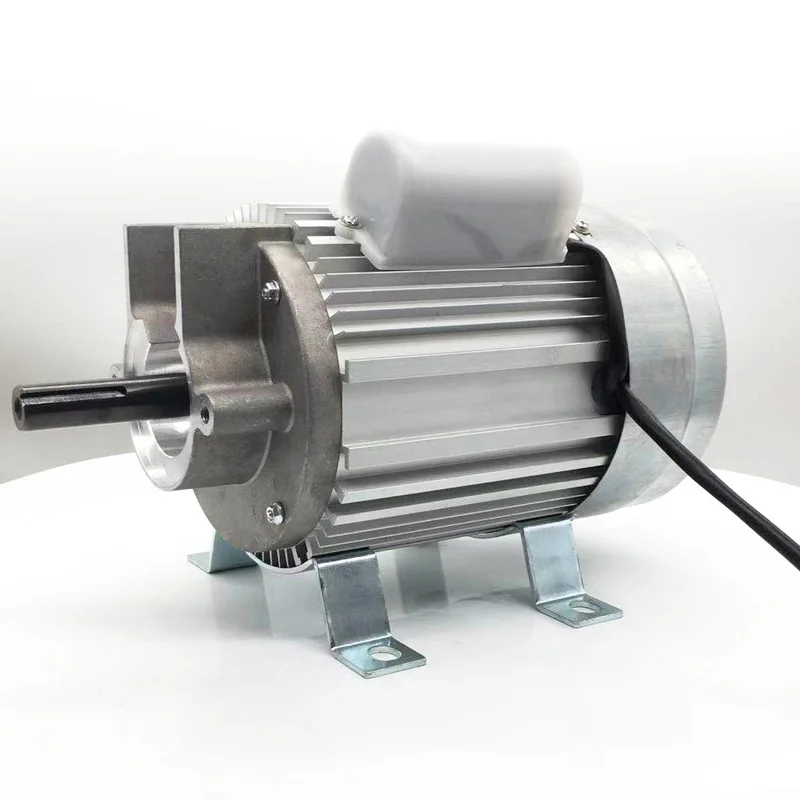There are a wide range of certifications required to export motors internationally, which need tot be satisfied to adhere to local laws in other countries. “Garnering these certifications is essential to enter foreign markets and generate confidence with consumers. Here are some popular motor export certification, including CE certificate, CCC certificate and ETL certificate. These conformity or declaration of the motor is quality and safety proclamation (CE, CCC) for standard metting one of differents norms existing in diffe'rent countries or continents. These certification requirements are fundamental when trading internationally in the automotive sector.
The burdens and hindrances faced in exporting motors by navigating the treacherous path of international certification.
It can be difficult and confusing trying to figure out the ins and outs of international certification for motor exports—especially for businesses who are new to exporting their goods globally. Considering the varying requirements of different nations, the paperwork filling and stringent testing methods, getting international approved certification for motor exports is time consuming. But with the perfect guidance and support companies such as POWERSTAR can expedite certification process and conform to the tough standards for other markets. How companies can navigate the maze of international certification for motor exports By working closely with professionals who are experts in their field, and up-to-date on all relevant regulatory changes.

A Guide to Getting International Certification for Motor Exports
The points above illustrate how you can successfully gain international certification for motor exports but it involves meticulous planning and the ability to be proactive from individuals in charge Detail. Here are some tips and tactics to help companies accomplish their certification aims:
Investigate the certification requirements for your target markets: When you want to ship motors to a new country, it is very important that you fully investigate what certifications apply in that particular market. This will give you an insight of what it takes in order to be compliant with local regulations and not waste time getting rejected.
Work with a reliable certification agency Where necessary, work with an established certification body like POWERSTAR to make the certification process as easy as possible and guarantee you have motors that comply. This is where such agencies can be invaluable as they have the specialists available to help you with each part of the process, and support you in overcoming any problems faced.
Quality testing and compliance Invest in quality testing and compliances to guarantee that your motors will meet the highest standards of quality and safety. This can mean performing performance testing, safety analysis and quality audits to verify that your products comply with the demands of international certification organizations.
Keep current on regulatory changes: The rules surrounding motor exports are undergoing frequent alterations, with new standards and regulations added on a regular basis. It is crucial to keep up to date with these changes and adjust your certification approach accordingly so that you always remain compliant to international regulatory requirements.
With these tips and tricks, businesses can increase the likelihood of successful international certification for motor exports and growing reach into foreign markets.
Common stumbling blocks with International certificate for Motor Exports – How to get past it
While such international certification for motor exports is a necessary condition for entering overseas mar- kets and to guarantee product quality and safety, it is also accompanied by various difficulties. International certification challenges for businesses There are typical obstacles that businesses come across when approaching an international certification process- language barriers, cultural issues, legal implications and technical factors. These hurdles can result in delays in the certification process, added costs and even denials of motors exported.
Do those challenges ring true to you? With insight, companies can do what work there is to do ahead of time. That can mean tapping into the knowledge of translators and interpreters, overcoming whatever language barriers exist, delving deep into what each market requires in terms of regulation AC Motor and working hand-in-hand with local partners to understand cultural differences. With proper preparation, flexibility and problem-solving abilities, businesses can avoid common hurdles when facing international certification for motor exports and experience a seamless and successful certification process.
International Certification for Motor Exports: Making the Export Process Efficient and Streamline
In a highly competitive world market, the international certification for motor exports needs to be simplified in order to stay ahead and operate an efficient export business. Companies that take strategic steps to streamline and improve certification can speed the approval of their motors for export, reduce expenses, and accomplish greater overall business value. Here are some of the important tips to help you quicken your certification process:
Opening the lines of communication: Effective organization-wide or intradepartment communication between internal teams, certification bodies and regulatory authorities is essential to efficient BLDC Motor certification. By keeping channels of communication open and transparent, businesses can be certain things run smoothly and stakeholders are all aligned during the certification journey.
Automating Documentation and Compliance Procedures: The use of technology to automate documentation and compliance procedures can largely cut down the time, that's invested in getting international certification for motors' exports. Through the use of digital data and compliance tracking/reporting tools, businesses can optimize certification processes while reducing potential for errors or hold-ups.
Proactive Compliance: Actively monitoring new legislation, remaining up-to-date on industry best practices, and constantly refining internal compliance efforts are necessary for simplifying the certification process. Fulfilling regulatory requirements ahead of time and adopting proactive paths for compliance help companies to manage the bottlenecks in international certification more smoothly.
Through these measures, and with a proactive attitude to international certification for motor exports, businesses EC Motor will be able to simplify the process of exporting products, significantly improve their status in the market and realise sustainable growth in the global motor industry. Companies such as POWERSTAR can meet challenges and seize opportunities, and gain the upper hand in global export of Motors with dedication to quality, compliance, continual improvement.